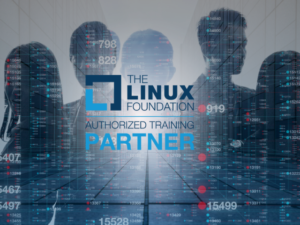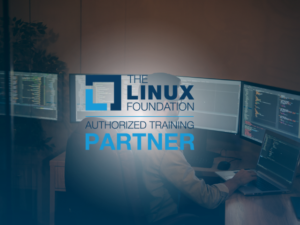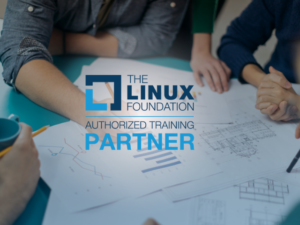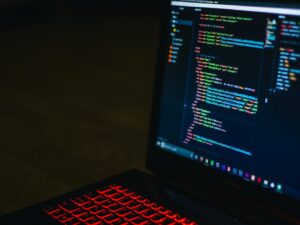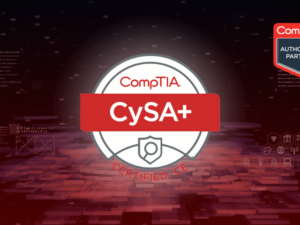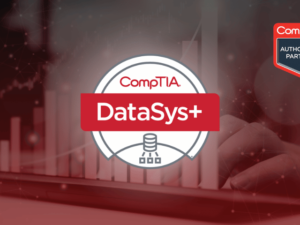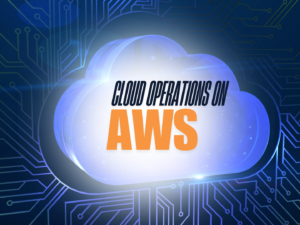Developing Linux Device Drivers (LFD430)
- Description
- Reviews
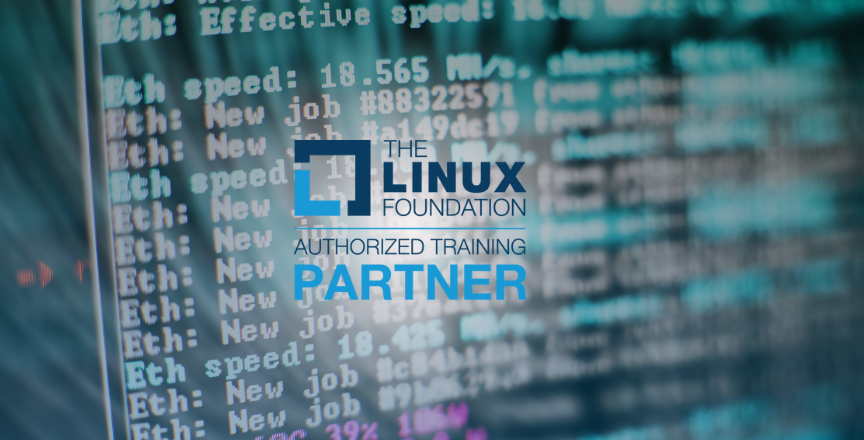
DEVELOPING LINUX DEVICE DRIVERS (LFD430)
COURSE DESCRIPTION
This instructor-led Linux device driver course will teach you about the different types of Linux device drivers as well as the appropriate APIs and methods through which devices interface with the kernel.
TARGET AUDIENCE
This course is for experienced developers who want to learn how to develop device drivers for Linux systems.
COURSE OBJECTIVE
By the end of this course, you should be able to develop device drivers for Linux systems, grounded in a basic familiarity and understanding of the underlying Linux kernel.
COURSE OUTLINE
Introduction
- Objectives
- Who you Are
- The Linux Foundation
- Copyright and No Confidential Information
- Linux Foundation Training
- Certification Programs and Digital Badging
- Linux Distributions
- Platforms
- Preparing Your System
- Using and Downloading a Virtual Machine
- Things Change in Linux and Open Source Projects
- Documentation and Links
Preliminaries
- Procedures
- Kernel Versions
- Kernel Sources and Use of git
- Rolling Your Own Kernel
- Hardware
- Staging Tree
- Labs
How to Work in OSS Projects
- Overview on How to Contribute Properly
- Know Where the Code is Coming From: DCO and CLA
- Stay Close to Mainline for Security and Quality
- Study and Understand the Project DNA
- Figure Out What Itch You Want to Scratch
- Identify Maintainers and Their Work Flows and Methods
- Get Early Input and Work in the Open
- Contribute Incremental Bits, Not Large Code Dumps
- Leave Your Ego at the Door: Don’t Be Thin-Skinned
- Be Patient, Develop Long Term Relationships, Be Helpful
Device Drivers
- Types of Devices
- Mechanism vs. Policy
- Avoiding Binary Blobs
- Power Management
- How Applications Use Device Drivers
- Walking Through a System Call Accessing a Device
- Error Numbers
- printk()
- devres: Managed Device Resources
- Labs
Modules and Device Drivers
- The module driver() Macros
- Modules and Hot Plug
- Labs
Memory Management and Allocation
- Virtual and Physical Memory
- Memory Zones
- Page Tables
- kmalloc()
- get free pages()
- vmalloc()
- Slabs and Cache Allocations
- Labs
Character Devices
- Device Nodes
- Major and Minor Numbers
- Reserving Major/Minor Numbers
- Accessing the Device Node
- Registering the Device
- udev
- dev printk() and Associates
- file operations Structure
- Driver Entry Points
- The file and inode Structures
- Miscellaneous Character Drivers
- Labs
Kernel Features
- Components of the Kernel
- User-Space vs. Kernel-Space
- What are System Calls?
- Available System Calls
- Scheduling Algorithms and Task Structures
- Process Context
- Labs
Transferring Between User and Kernel Space
- Transferring Between Spaces
- put(get) user() and copy to(from) user()
- Direct Transfer: Kernel I/O and Memory Mapping
- Kernel I/O
- Mapping User Pages
- Memory Mapping
- User-Space Functions for mmap()
- Driver Entry Point for mmap()
- Accessing Files from the Kernel
- Labs
Interrupts and Exceptions
- What are Interrupts and Exceptions?
- Exceptions
- Asynchronous Interrupts
- MSI
- Enabling/Disabling Interrupts
- What You Cannot Do at Interrupt Time
- IRQ Data Structures
- Installing an Interrupt Handler
- Labs
Timing Measurements
- Kinds of Timing Measurements
- Jiffies
- Getting the Current Time
- Clock Sources
- Real Time Clock
- Programmable Interval Timer
- Time Stamp Counter
- HPET
- Going Tickless
- Labs
Kernel Timers
- Inserting Delays
- What are Kernel Timers?
- Low Resolution Timer Functions
- Low Resolution Timer Implementation
- High Resolution Timers
- Using High Resolution Timers
- Labs
ioctls
- What are ioctls?
- Driver Entry point for ioctls
- Defining ioctls
- Labs
Unified Device Model and sysfs
- Unified Device Model
- Basic Structures
- Real Devices
- sysfs
- kset and kobject examples
- Labs
Firmware
- What is Firmware?
- Loading Firmware
- Labs
Sleeping and Wait Queues
- What are Wait Queues?
- Going to Sleep and Waking Up
- Going to Sleep Details
- Exclusive Sleeping
- Waking Up Details
- Polling
- Labs
Interrupt Handling: Deferrable Functions and User Drivers
- Top and Bottom Halves
- Softirqs
- Tasklets
- Work Queues
- New Work Queue API
- Creating Kernel Threads
- Threaded Interrupt Handlers
- Interrupt Handling in User-Space
- Labs
Hardware I/O
- Buses and Ports
- Memory Barriers
- Registering I/O Ports
- Reading and Writing Data from I/O Registers
- Allocating and Mapping I/O Memory
- Accessing I/O Memory
- Access by User – ioperm(), iopl(), /dev/port
- Labs
PCI
- What is PCI?
- PCI Device Drivers
- Locating PCI Devices
- Accessing Configuration Space
- Accessing I/O and Memory Spaces
- PCI Express
- Labs
Platform Drivers
- What are Platform Drivers?
- Main Data Structures
- Registering Platform Devices
- An Example
- Hardcoded Platform Data
- The New Way: Device Trees
- Labs
Direct Memory Access (DMA)
- What is DMA?
- DMA Directly to User
- DMA and Interrupts
- DMA Memory Constraints
- DMA Masks
- DMA API
- DMA Pools
- Scatter/Gather Mappings
- Labs
Network Drivers I: Basics
- Network Layers and Data Encapsulation
- Datalink Layer
- Network Device Drivers
- Loading/Unloading
- Opening and Closing
- Labs
Network Drivers II: Data Structures
- net device Structure
- net device ops Structure
- sk buff Structure
- Socket Buffer Functions
- netdev printk() and Associates
- Labs
Network Drivers III: Transmission and Reception
- Transmitting Data and Timeouts
- Receiving Data
- Statistics
- Labs
Network Drivers IV: Selected Topics
- Multicasting **
- Changes in Link State
- ioctls
- NAPI and Interrupt Mitigation
- NAPI Details
- TSO and TOE
- MII and ethtool **
USB Drivers
- What is USB?
- USB Topology
- Terminology
- Endpoints
- Descriptors
- USB Device Classes
- USB Support in Linux
- Registering USB Device Drivers
- Moving Data
- Example of a USB Driver
- Labs
Power Management
- Power Management
- ACPI and APM
- System Power States
- Callback Functions
- Labs
Block Drivers
- What are Block Drivers?
- Buffering
- Registering a Block Driver
- gendisk Structure
- Request Handling
- Labs
Kernel Architecture I
- UNIX and Linux **
- Monolithic and Micro Kernels
- Object-Oriented Methods
- Main Kernel Components
- User-Space and Kernel-Space
Kernel Programming Preview
- Task Structure
- Memory Allocation
- Transferring Data between User and Kernel Spaces
- Object-Oriented Inheritance – Sort Of
- Linked Lists
- Jiffies
- Labs
Modules
- What are Modules?
- A Trivial Example
- Compiling Modules
- Modules vs Built-in
- Module Utilities
- Automatic Module Loading
- Module Usage Count
- Module Licensing
- Exporting Symbols
- Resolving Symbols **
- Labs
Kernel Architecture II
- Processes, Threads, and Tasks
- Kernel Preemption
- Real Time Preemption Patch
- Labs
Kernel Configuration and Compilation
- Installation and Layout of the Kernel Source
- Kernel Browsers
- Kernel Configuration Files
- Kernel Building and Makefiles
- initrd and initramfs
- Labs
Kernel Style and General Considerations
- Coding Style
- Using Generic Kernel Routines and Methods
- Making a Kernel Patch
- sparse
- Using likely() and unlikely()
- Writing Portable Code, CPU, 32/64-bit, Endianness
- Writing for SMP
- Writing for High Memory Systems
- Power Management
- Keeping Security in Mind
- Labs
Race Conditions and Synchronization Methods
- Concurrency and Synchronization Methods
- Atomic Operations
- Bit Operations
- Spinlocks
- Seqlocks
- Disabling Preemption
- Mutexes
Semaphores
- Completion Functions
- Read-Copy-Update (RCU)
- Reference Counts
- Labs
Memory Addressing
- Virtual Memory Management
- Systems With and Without MMU and the TLB
- Memory Addresses
- High and Low Memory
- Memory Zones
- Special Device Nodes
- NUMA
- Paging
- Page Tables
- page structure
- Labs
Memory Allocation
- Requesting and Releasing Pages
- Buddy System
- Slabs and Cache Allocations
- Memory Pools
- kmalloc()
- vmalloc()
- Early Allocations and bootmem()
- Memory Defragmentation
- Labs
Please contact us for the schedules and for booking a private class.
Request a Quote
Popular Courses
Archive
Working hours
| Monday | 9:00 am - 6.00 pm |
| Tuesday | 9:00 am - 6.00 pm |
| Wednesday | 9:00 am - 6.00 pm |
| Thursday | 9:00 am - 6.00 pm |
| Friday | 9:00 am - 6.00 pm |
| Saturday | Closed |
| Sunday | Closed |

